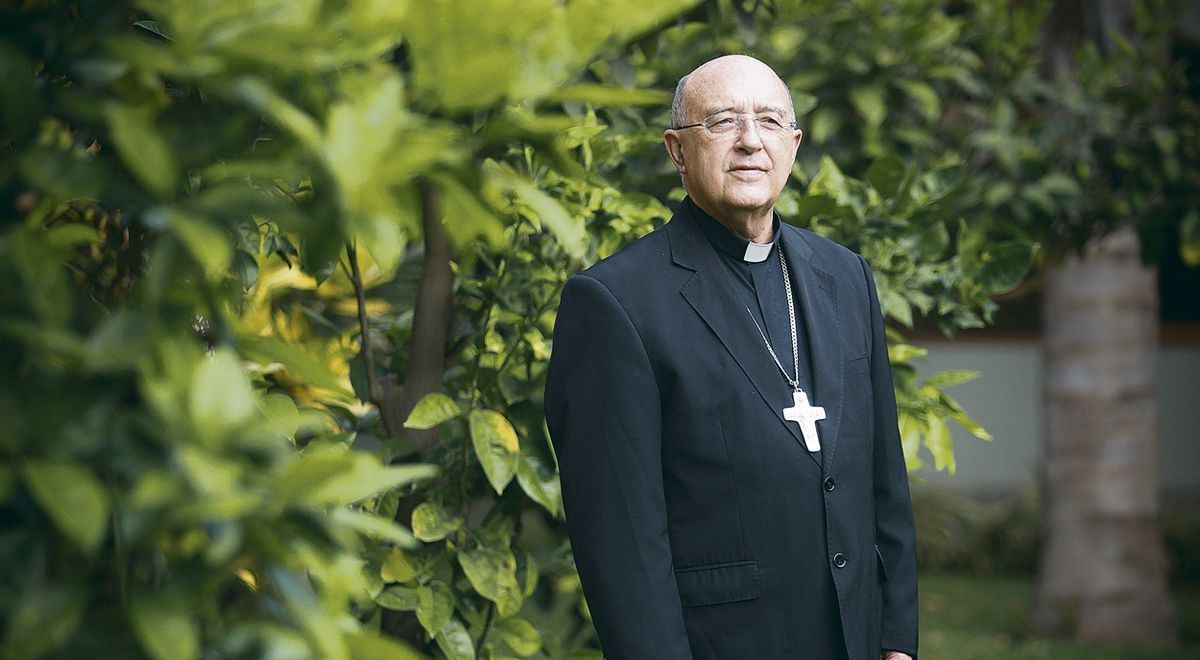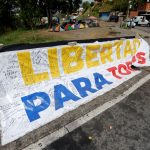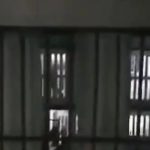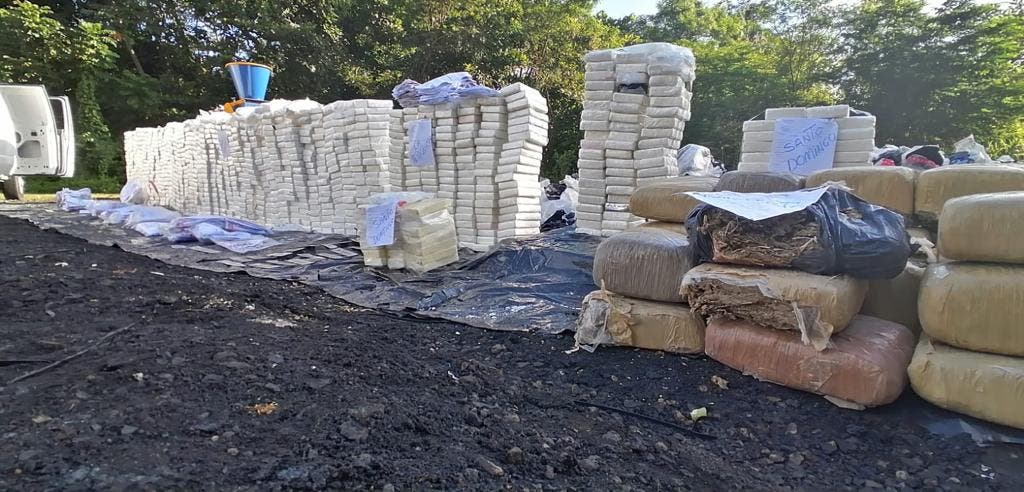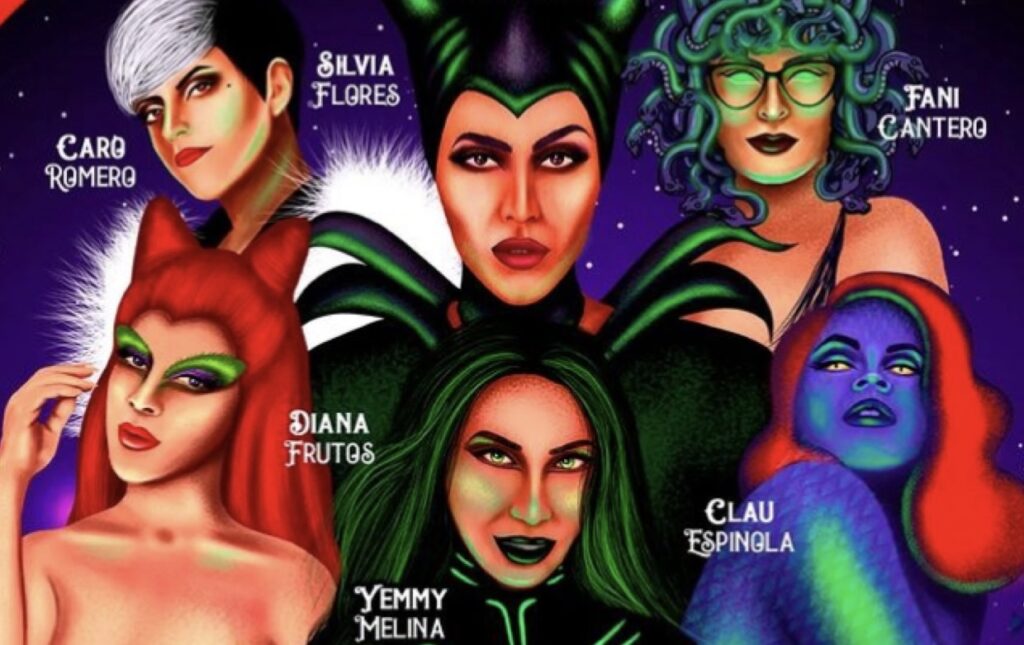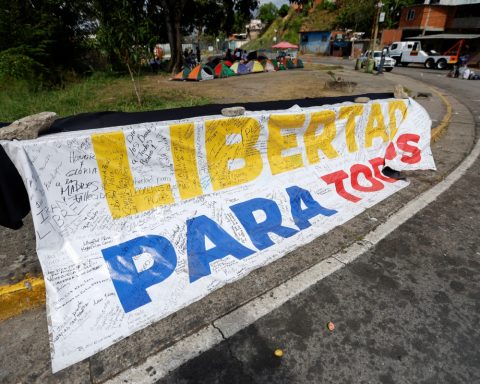His meeting with the president and the announcement of changes have aroused positive responses and very severe criticism. Did you expect those reactions?
Anything that the Church says or does in this sense will have positive and negative reactions. The Church respects the autonomy of politics, but we cannot say that the Church has to reduce her mission to the private. The Church does a lot in the field of evangelization, social, education, etc. Pope Benedict XVI clearly says that the Church cannot and should not remain on the sidelines of building a better world or awakening the ethical and spiritual forces of the gospel. In that sense, she doesn’t surprise me. But I focus more on the positive. My visit was due to an invitation made to me by President Castillo, therefore, it is not an interference by the Church.
It was an invitation through Congressman Bermejo.
Indeed, through the mediation of Congressman Bermejo.
The strongest attacks were from Cerrón and Peru Libre. They speak of an “ecclesiastical coup” and that the Church supports the conspiracy against the president.
In Holy Week we must remember that there were irreconcilable enemies against Jesus, which even led to condemning him to death on the cross. Why did they condemn him if he went through the world doing good? Because there were political authorities who had interests, religious authorities and a people who allowed themselves to be manipulated. Likewise, we join criticism to the insults that Jesus received. That is, the passion of Christ continues for subordinate interests.
YOU CAN SEE: Again there is talk of a shift in the Executive Power
Cerrón criticizes the Church and sends a message to Castillo, as if to say: if you stay away from me, things will go very badly for you.
I can’t say that, but actually. I was struck by that virulent action against the Church, which we certainly welcome with respect, but we do not accept it.
At the other political extreme there are still many critics. They say that the Church seeks to save Castillo, that the only solution is his resignation and the Church is playing his game. Do they have any handle?
No. I respect opinions. I am responsible because I have not gone as a representative of the Peruvian Episcopal Conference, it was simply a personal invitation. But it is important to indicate that as a Church we have a public role that is not exhausted in assistance and education activities, but rather seeks to promote the integral dignity of the human person. We seek brotherhood in Peru. And that is the great call to all Peruvians. We cannot be as we are now, confronted, Peru is in intensive care. Pope Francis called on everyone last Sunday for a peaceful solution as soon as possible. And as a result of this invocation, I responded immediately. We have to find a peaceful solution. And that happens by seeking the common good. Even with the risk of being criticized, of being misunderstood.
In the meeting you held with President Castillo, did you see him determined to really make changes? Did he use the expression “radical change” or is it his own?
Actually, it’s an expression of mine. But that responded to what he said. I asked him last Wednesday if he is determined to make that change and he said yes. And the next day, Holy Thursday, with Dr. Max Hernández, he also ratified that same decision, therefore, we were talking about trust. This is the only opportunity that President Castillo has to get ahead, the only one, despite the shouting, scandals and insults, that I personally receive them as Jesus received them, with humility, but knowing that what we have done and said is for the good of Peru. What we want is, as Pope Francis asks, to rehabilitate politics, and that is when the good of all is sought, not of a group with interests that damage the unity of the country.
YOU CAN SEE: President Pedro Castillo and Cardinal Pedro Barreto seek a way out of the crisis
Castillo has announced changes before and they have not occurred. That generates mistrust, which is understandable, right?
Of course, and I share that disappointment. We have had to wait more than 8 months, from bump to bump, and that is why it is very difficult to believe in a change. And for that, I said, it must be radical. Radical in the sense of a qualitative change of direction, It is not about putting patches, it is about renewing the political structure of the country.
It is not about changing one or two ministers…
No, no, that’s not a solution. And the problem is not only President Castillo, it is also the Legislature and also civil society, we all have to be united in a single objective. Here we are looking for a resurrection of the country, we cannot be in more or less, it is now or never. Give that qualitative leap to a transformation of politics so that honest people can serve the people who elect them.
We demand changes from the Executive, but what about Congress? It is also part of the crisis.
Yes, to the powers of the State, the political parties, the institutions and the various religions in Peru. We have to look with hope to the immediate future, but Peru cannot wait any longer. We must restart a free, independent, but fraternal life.
YOU CAN SEE: Cardinal Barreto: “There will be a new cabinet and a premier who does not depend on Peru Libre”
resounding “The problem is not only President Castillo, it is also the Legislature.” Photo: Andean
In the meeting, did you see Castillo worried, isolated, anguished? Is he aware that he has been poorly advised, that there have been errors and allegations of corruption in his government?
We saw it, and Dr. Max Hernández, very humane, made it known. Because the country’s problems, which historically come like corruption, cannot be solved in a few months, and even less when the country is divided, confronted, and many times we have focused only on the president, who has made serious mistakes. He, in a way, when he accepts the changes he is acknowledging his mistakes. But the president is not going to do everything alone, nor are the ministers, and there are some really very good ministers, who are doing a titanic job in very difficult circumstances. And in the Legislative there are very good congressmen, with very good will. But there is a group, I would call it negative, that changes agendas, they have dedicated their time to vacancies and such things, forgetting the urgent needs of the country. The Judiciary tries to make its service to the country much more effective and efficient. Now, let’s not forget that civil society must have a very important role.
You ask for new ways of doing politics, will it be possible to create it in the National Agreement? Is it the correct instance?
I would say that the National Agreement forum is not only a reliable but an effective instance to seek that radical change not only in the policy of the Executive but also of the Legislative, of the Judicial Power, of the economy. On August 18, 2021, President Castillo signed 6 priority points to unite the country. And there are those democratic minimums that President Castillo swore as a candidate, just like Mrs. Keiko Fujimori. It can be the basis for the radical change we are asking for, a sign of hope.
Everyone agrees on the need for changes. But what happens if the president makes the changes, but they are not successful as they were before?
It can be, it is. That is why I believe that the National Agreement, a space where he participates and the powers of the State, parties, institutions, social movements and churches participate, although there are still groups that are not in the forum, but we are on that path, is the best space to ensure that this decision of the president is not diluted in issues that do not respond to the urgent needs of the country. It is said that we want a peaceful solution, this is a peaceful solution.
YOU CAN SEE: Secretary of the National Agreement: “Castillo intends to appoint a broad-based cabinet”
And the elections are coming.
Yes, and in the frontal fight against corruption Let’s hope that in the elections there are no candidates with honesty problems. Please step aside. Those who are convinced of serving and not using power must be encouraged to participate in politics. There are some who are very capable, with a vocation for service, but they don’t want to risk their lives because they see that everything is a tangle of mafias, of corruption at all levels.
“The Church will not stay in the sacristy”
“You speak of fighting all pandemics, including politics, isn’t the Church exposed to being involved in the political game by seeking solutions to the country’s great problems?
Our Church cannot be exempt from what is at the service of the human person, whoever he may be. You cannot exempt yourself from this great responsibility. As a Church we respect the autonomy of politics, as I have said, but the Church will not remain in the sacristy as some are now asking.
It is what some ask after the meeting with Castillo.
It is an obsolete argument that we cannot accept. The Church has to be salt and light, and be ferment, yeast in society from the ethical values that Jesus offers us in his gospel. This point seems very important to me. The laity in the Catholic Church can participate in political life even in parties. We priests cannot join a party, but we can seek the common good of all. And that really motivates us.
YOU CAN SEE: Barreto: “The president is aware that he was advised in a negative way in these 9 months”
Despite the criticism.
We are not afraid of criticism, of crucifixions, as Jesus these days teaches us. The resurrection of Jesus gives us the certainty that Peru can be resurrected. Peru has hope. And he urgently needs this injection of hope, which is possible because for God everything is possible. We must unite in what can relaunch us to a transformation of society.
